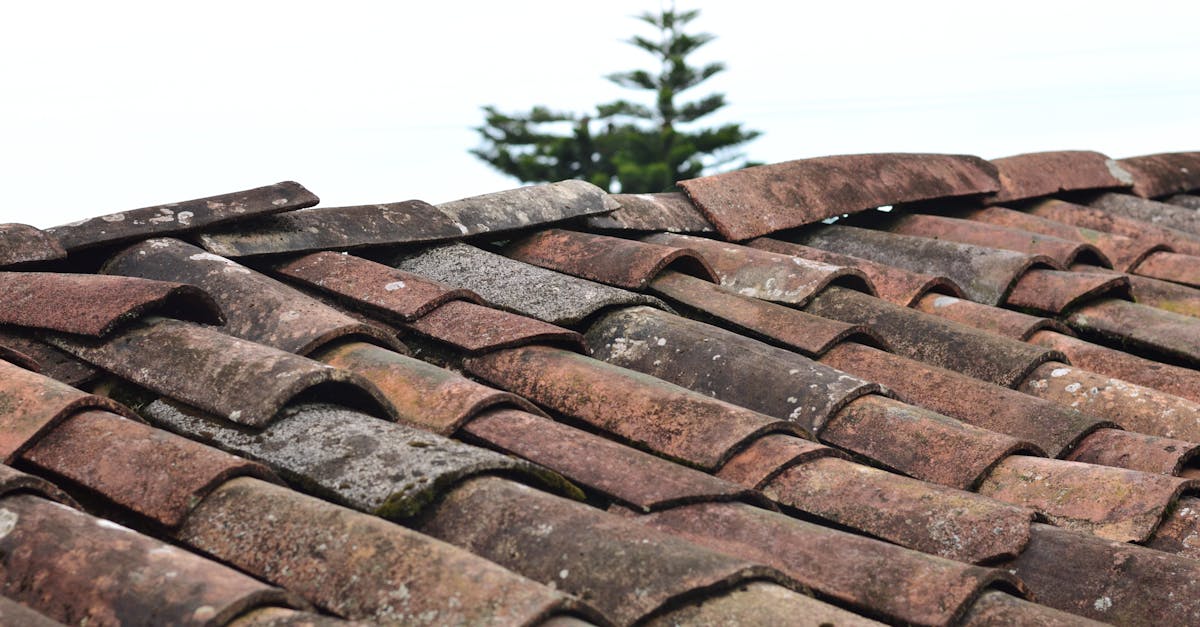
Sky Light Roofing
Common Issues with Sky Light Roofing
One of the prevalent concerns associated with skylight roofing is water leakage. Over time, seals can deteriorate due to weather exposure, leading to potential water entry. This can cause damage not only to the skylight itself but also to surrounding structures and interior spaces. Monitoring for signs of leaks is crucial to maintain the integrity of both the skylight and the roof.
Another common issue is condensation accumulation within the skylight. This often occurs when warm, moist air meets the cooler surface of the glass. Excessive condensation can obscure visibility and lead to water pooling, fostering an environment conducive to mold growth. Addressing ventilation and insulation around the skylight can help mitigate these problems, ensuring a functional and aesthetically pleasing roof feature.
Troubleshooting Problems in Sky Light Roofing
Identifying the source of leaks in skylight roofing can be a challenging task. Many homeowners notice water stains or dampness around the skylight area. Inspecting the flashing is a crucial first step, as improper installation or damage can lead to water intrusion. Additionally, checking the seals around the glass for decay or deterioration is essential. Make sure to look for any visible cracks in the frame or glass that may allow moisture to seep in.
If condensation builds up inside the skylight, it may indicate poor ventilation or insulation problems. Ensuring that the area is adequately ventilated helps reduce humidity levels, which can mitigate condensation. Another potential issue could arise from debris accumulating on the skylight or surrounding roof area. Regular cleaning and maintenance of the skylight will enhance functionality and prolong its lifespan. A proactive approach in addressing these common problems helps maintain the overall integrity of the roofing system.
Cost Considerations for Sky Light Roofing
When planning to install skylight roofing, potential costs encompass various elements beyond the initial purchase price. Factors such as the size and type of skylight can significantly affect overall expenses. Custom skylights or those with advanced energy-efficient features often come at a premium. Installation costs also vary depending on the difficulties inherent to the existing roof structure and required modifications. Homeowners should factor in these elements to create a realistic budget that accounts for both material and labor costs.
Another important consideration relates to long-term savings versus initial outlay. High-quality skylights can enhance energy efficiency, leading to lower electricity bills through improved natural lighting. Additionally, they can contribute to increased property value and aesthetic appeal. Balancing the upfront investment against potential future savings is crucial for homeowners. Understanding these cost dynamics helps in making informed decisions about skylight roofing projects.
Factors Influencing the Price of Sky Light Roofing
The choice of materials significantly impacts the cost of skylight roofing. Premium glass options, energy-efficient coatings, and robust frame materials can increase expenses. Installation complexity plays a crucial role as well. Custom designs or challenging roof layouts may demand more labor and specialized skills, thereby affecting overall pricing.
Local climate and geographical location can also influence costs. Regions with extreme weather conditions might require more durable structures that can handle additional stress. Labor costs vary from one location to another, creating disparities in pricing. Additional permits and local building codes may further affect the overall expenditure involved in skylight roofing projects.
Comparing Sky Light Roofing with Traditional Roofing
In recent years, the choice between skylight roofing and traditional roofing has sparked considerable interest among homeowners. Skylight roofing offers unique advantages, such as increased natural light and improved aesthetics, creating an inviting interior environment. In contrast, traditional roofing materials tend to focus more on durability and insulation properties, providing a different set of benefits.
Cost is another pivotal differentiator between these two roofing styles. Skylight roofing installations generally involve higher initial expenses due to the complexity of the designs and the labor required. In contrast, traditional roofing options often offer a more economical solution in terms of installation and maintenance costs over time. As homeowners weigh these factors, they must consider not only the financial implications but also their personal preferences regarding style, comfort, and energy efficiency.
FAQS
What is sky light roofing?
Sky light roofing refers to the installation of skylights within a roofing system, allowing natural light to illuminate interior spaces while also enhancing energy efficiency.
What are common issues with sky light roofing?
Common issues with sky light roofing include leaks, condensation buildup, improper installation, and damage due to weather conditions. Regular maintenance can help mitigate these problems.
How can I troubleshoot problems in sky light roofing?
To troubleshoot sky light roofing issues, inspect the seals for leaks, check for condensation, and ensure that the skylight is properly installed. If problems persist, consider consulting a roofing professional.
What factors influence the cost of sky light roofing?
Factors influencing the cost of sky light roofing include the type of skylight chosen, installation complexity, roofing materials, and labor costs. Additional features, such as UV protection and energy efficiency ratings, may also affect pricing.
How does sky light roofing compare to traditional roofing?
Sky light roofing differs from traditional roofing in that it incorporates natural light sources, enhancing indoor brightness and aesthetic appeal. Traditional roofing typically focuses on functionality and protection without such features.
Related Links
Janney RoofingBatterbee Roofing